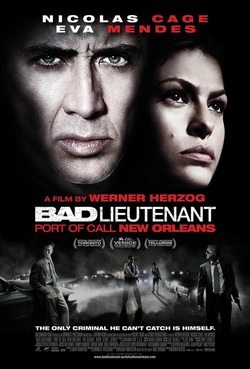
Bad Lieutenant, and Bad Lieutenant: Port of Call New Orleans feature outstanding performances from Harvey Keitel and Nicholas Cage. It's not the sort of work that everyone can appreciate. Americans rarely suffer enough to understand what they are watching in these films. But in both cases, what is happening is great and terrible and rude, and needs a little more recording---out of respect, I suppose.
Glancing around the internet, the critical writing on these two films seems to me to be inadequate in its attempts to describe what occurs on the screen. Occasionally, someone like Roger Ebert might mention that the two films are distinctly different. But then he's forced to spend so much time describing the plot that he does not have the opportunity to cut into the body and look out the the eyes of skull. Ebert often waited to do this until a third or fourth viewing, which is something I do not think he got to do with these two pictures.
Both Bad Lieutenant and Bad Lieutenant: Port of Call New Orleans tell the story of bad cops. Not incompetent cops, but evil cops--agents of the state that enforce rules arbitrarily, and with little regard for the purported values or rights of the citizens whom they are sworn to protect. Both films feature outstanding, risk-taking performances from their lead actors, Harvey Keitel and Nicholas Cage. Unlike most films, these movies neither sensationalize nor glamorize drug use. The two bad cops are addicts. They abuse their authority and harass and steal from those who stumble into their way. They gamble recklessly (though not unreasonably) and marvel at the turns of fortune. They cringe, stumble, and suffer their way through each night and day without rest, and with even less hope. These are not typical protagonists. They are not anti-heroes, either. They differ from what's found in spaghetti Westerns like The Good, the Bad, and the Ugly, and gangster films like Goodfellas. These protagonists differ, because they are not cool. They know they are not going to win, but they do not have the courage to lose. In the context of modern can't-lose America, this makes their journey art, rather than popular fantasy. They stand as absolute challenges to America's identity as a protestant, hard-working, Christian nation.
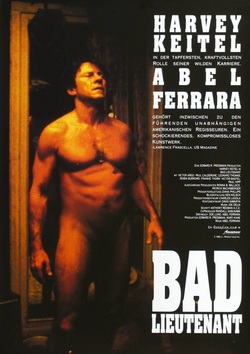
A lot of critics cite Bad Lieutenant as existing in a harsher world than Bad Lieutenant: Port of Call New Orleans. But this depends entirely on one's willingness to embrace the film-maker's vision of morality. The Herzog film, in fact, exists in a more realistic and less compassionate world than the Ferrara film, even if Herzog smiles more along the way.
Crucially, Ferrara never explains why his Lieutenant has gone bad. We never learn the circumstances surrounding his downfall, or the proximate causes of his behavior. When did he begin using drugs? When did he lose his faith? When did he emotionally abandon his family? None of this matters. Ferrara is not interested in social explanations. The film differs from naturalism, for it makes no attempt to show a sequence of consequences. There is not really much of a plot, but instead a series of hellish, rotating scenes, each one compiling the misery of a man soaked with evil, and painfully aware of it.
Ferrara's Bad Lieutenant operates in a medieval moral universe. Men fall; men must blame themselves for their fall, and only through the miracle of Jesus can human-beings find hope and salvation. In the film, miracles abound. The Dodger's lose to the Mets in a seven game series after going up 3-0 over the first three games--an historical impossibility, as no team in the major sports has ever lost a best-of-four series after sweeping the first three games. Christ appears (physically appears) throughout the film in various icons, until he wordlessly steps before the lieutenant, and allows him to unleash his guilt. When the image of Christ dissolves, the lieutenant finds himself at the feet of the woman that will guide him to another pair of sinners--two young men that violently raped a young nun and desecrated a Church. He wants to kill the two young men--he wants blood revenge, an eye for eye. Why? For the sake of some bloody concept of justice wrapped in fear and anger. He wants revenge for the nun who was raped. Doesn't everyone want revenge? And won't God demand revenge on him for all the crimes he has committed? But the nun does not want revenge. She has insisted that the boys go free. And so instead the lieutenant gives the two rapists $50,000 in drug money and puts them on a bus out of the city. He shows mercy: foolish, helpless and theologically essential Christian mercy. By abiding in Christian forgiveness, the lieutenant proves his faith, even if his mind is still filled with dread and doubt. Finally, the lieutenant is killed immediately after sending the two boys out of the city; his death immediately follows his one act of penance, and thus ensures his salvation.
It is possibly the most Catholic film ever made. It is certainly the film most in tune with Roman iconography; this is the world of blood spattered martyrs, redeemed through suffering. It is a movie that depicts medieval, European Catholicism, rather than the slushy, politically democratic Catholicism we typically find in America.
Now, if one believes in Christ, the film's ending should in fact come across as optimistic--redemption achieved! God forgives! Miracles abound. But if you do not believe in the existence of God, then the ending steps into yawning, delusional nihilism; if the viewer is brave enough, the triumph of delusion is so supreme as to achieve a high station in artistic achievement, even if it's an achievement incomprehensible to most passerbyers--if you do not like this movie, do not worry. Most people cannot understand Hamlet, Macbeth, or King Lear either.
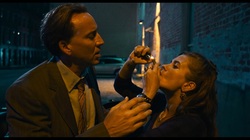
Bad Lieutenant: Port of Call New Orleans is an entirely different experience. It features an intricate (though inessential) plot. The tone, as Roger Ebert pointed out, is comic, rather than tragic. The stakes for the lieutenant's soul are less clearly definable, but still quite high. Herzog, as is his custom, is more interested in unpacking the light-headed irrational foibles of man. It's Nietzsche with a camera, albeit with a more sexually mature mind.
Interestingly, Ebert calls Herzog more forgiving than Ferrara. But it is forgiveness on a totally different scale. Herzog's forgiveness stems from nature, and falls like the rain or blows like a breeze--it comes from nature, and is not miraculous in the slightest. If Herzog laughs at his characters, it is because there is little point in haranguing them for their evils. God's not going to damn them, or forgive them. Given their finite existence, we might as well not take them too seriously, and laugh for their sake as well as our own.
Ferrara, in his film, traces the crippled the life of a lonely man, and then saves that man's soul just before he destroy's the body. Herzog damns the entire system--all of America--but merrily laughs and marvels at his protagonist's wild and unorthodox courage. Ferrara's lieutenant lives in a medieval nightmare; Herzog's lieutenant lives the American dream, but he lives with the constant fear of waking up.
The clues begin early on. The lieutenant is back on the job after partially recovering from a back injury. He requires a life-long prescription to Vicodin, but what of that? Everyone takes something. Before long, the Vicodin isn't enough, and so the lieutenant starts abusing harder drugs that he steals from the yuppies and street thugs wandering around New Orleans. Sustained with chemicals, the lieutenant returns to work just in time to take a lead role in investigating a mass homicide. The mass homicide is a top priority, his captain notes, which means that overtime pay is authorized. If you're a cop, mass homicide pays handsomely. The sweet smell of monied bureaucracy thus initially appears at a systematic level--the entire force financially benefits from criminal bloodshed. In Herzog's own words, the lieutenant exists "in the bliss of evil."
After that, a lot of plot happens. All of it is especially well portrayed. There's a bit about the lieutenant's alcoholic dad finally going sober, and another bit about the lieutenant's prostitute girlfriend breaking free from the world's oldest profession (but only after the lieutenant makes enough money to support her). The part about the iguanas is pretty cool, and it takes place in the context of a wild and reckless investigation ... Tracking the plot of this movie is like counting the turns on a roller coaster: yes, you can do it, but it's better just to enjoy the ride. The more important aspects of the film are the characters who are on the ride with you, and the environment through which the tracks travel.
Throughout the film, Herzog's lieutenant seems certain to die violently. He has, at one point, at least three different groups trying to destroy his life. The more obvious the danger, the more risks he takes. But the risks prove far more calculating than one might suspect. Unlike Ferrara's lieutenant, Herzog's clearly knows how to conduct police work, and how to manipulate the system as precisely as possible, all as a prelude to victories in family and fortune. The lieutenant straddles the line between rule-breaking and rule-enforcing, and this proves useful to all of the other characters in the film. And so he lives. Indeed, we all rely on these people each and everyday. We admire (and use) the people that rebel against the system, even as we ruthlessly enforce those rules that seem to us especially just and pertinent.
After two hours of plot, the police force promotes the lieutenant to captain; the band plays 'God Bless America.' The captain leaves the ceremony with his prostitute-turned-homemaker wife, and drops her off their new, well-manicured suburban home. God bless America, indeed. The lieutenant peered deep into the depths, found a way to make those depths work for him, and came out the other side with a hot wife and an extra bar of rank. But throughout, the lieutenant is thoroughly human, and thoroughly American. He is also thoroughly despicable.
Throughout the film, nature nibbles at the weak buttresses of civilization. The first shots of the film are filled with the ravaging, fast-rising waters of Katrina, where Cage's lieutenant dabbles with heroics, but risks more than he intends. In the middle of the film, the lieutenant approaches the scene of an auto accident--a truck has turned over after striking an alligator that wandered onto an access road. The last shots of the film take place in the Aquarium of the Americas. Here, the water is controlled--carefully kept in vast glass containers holding thousands of predatory sharks. In America, we have nature firmly under control, don't we? Nature also attacks the home of the lieutenant's father, who resides in a rotting plantation-style home; the image wordlessly evokes the memory of Southern slavery, and the 'civilization' that allowed for the brutal, race-based enslavement of nearly half its population. As a child, the lieutenant tells us that he found silver spoons buried in the yard; he and his prostitute girlfriend smile at the idea, and fondly wonder at the miracle of silver spoons.
Nature and desire suggest that our moral structures offer little protection in times of need. When Katrina hits, God and government disappear. Herzog's film dances with this level of moral hurt in its knees; it might not be graceful, but the effort is astonishing and tremendous. A lot of the credit must go to the screenwriter, William Finkelstein, who appears in the film as a gangster that wants 'more than his share.'
When writing about 2001: A Space Odyssey, Roger Ebert noted that most movies "are about characters with a goal in mind, who obtain it after difficulties either comic or dramatic." 2001, in Roger's estimation, transcended this approach and attempted to fulfill a basic human need for intelligence. The Bad Lieutenant films are not transcendent, but they are also not strict servants of human desire. They push us to explore suffering, and challenge the moral conventions of our time. Plato, perhaps the harshest dramatic critic in the history of thought, would have despised these films for subverting the moral structure of established institutions--but Plato would have loved the way a bad lieutenant can make you think!
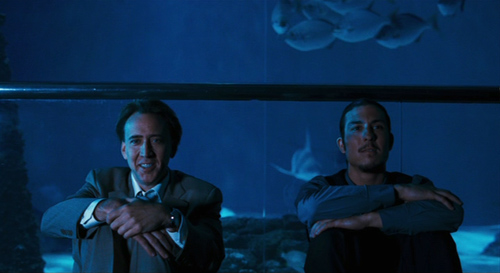
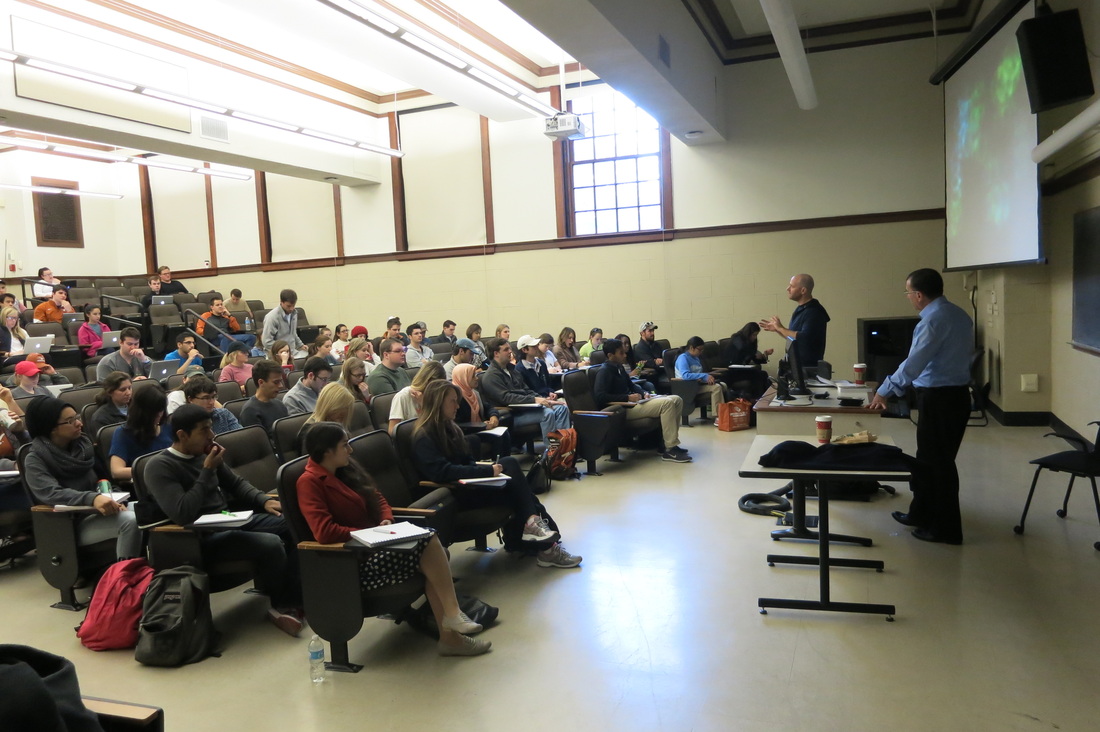



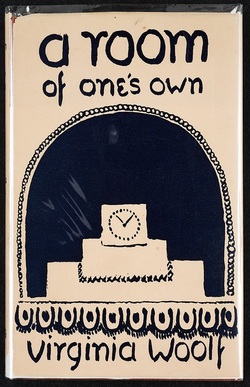
 RSS Feed
RSS Feed